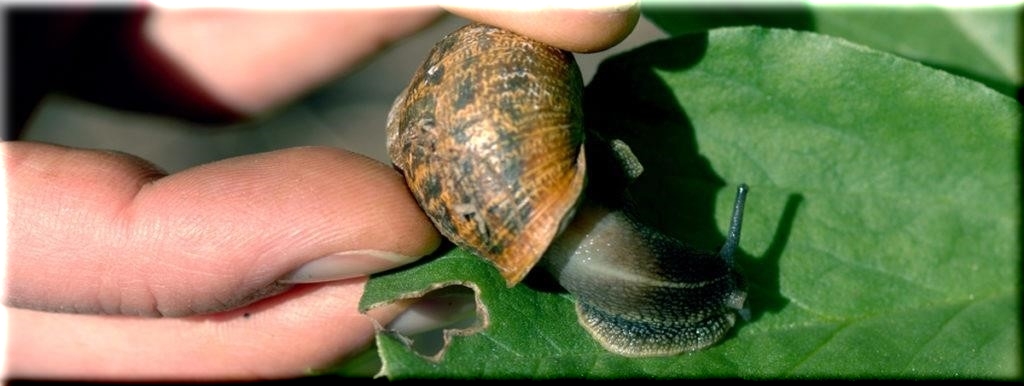Garden
How to Get Rid of Garden Snails: Effective Control Methods and Prevention Tips
Imagine a vibrant garden, bursting with life, only to be marred by the slimy trails and chewed leaves left behind by garden snails. These pesky creatures can quickly turn your dream garden into a nightmare. But don’t despair! There are effective ways to control and even prevent these unwelcome guests from taking over your precious plants.
Effective Methods to Control Garden Snails
First, let’s tackle the most common question: how do you get rid of snails in your garden? There are several methods you can use to keep their numbers in check.
Hand Picking
This might sound tedious, but hand-picking is surprisingly effective, especially for small infestations. Snails are most active in the morning and evening when temperatures are cooler, so that’s the best time to go snail hunting. While you’re at it, keep an eye out for their tiny white eggs, which are often laid in clusters. Remove those as well to prevent a future snail invasion.
Creating Barriers
One of the most effective ways to keep snails away from your prized plants is to create barriers they simply can’t cross. Think of it like a moat around your garden, but instead of water, you’ll use materials that snails find unpleasant.
Here are some popular barrier materials:
- Copper Tape: Copper ions react negatively with the slime that snails secrete, creating an unpleasant sensation for them. Place copper tape around the base of your plants to deter them.
- Diatomaceous Earth: This naturally occurring powder is made from fossilized algae. When snails crawl across it, the sharp edges of the powder disrupt their skin, causing dehydration and eventual death. You can sprinkle it around your plants or create a wider barrier.
- Eggshells: Sharp edges of crushed eggshells can deter snails from crossing.
- Wood Chips: Rough and textured wood chips create a physical barrier that snails find difficult to navigate.
Setting Beer Traps
Snails have a weakness – they love beer! This makes setting beer traps a fun and effective way to control them. Simply place a shallow dish or container filled with beer in your garden. The snails will be attracted to the scent and fall in, where they eventually drown. Remember to bury the trap slightly, so it’s less tempting to beneficial insects.
Utilizing Other Control Methods
While hand-picking, barriers, and beer traps are effective, you can also explore other methods.
- Commercially Available Snail Repellents: There are a variety of repellents available that contain ingredients like iron phosphate or copper sulfate. Always follow the instructions on the label and apply them carefully.
- Organic Repellents: Garlic spray or coffee grounds can also deter snails.
Preventing Snail Infestations
Now that you know how to get rid of snails, let’s focus on how to prevent them from becoming a recurring problem.
Managing Ground Cover
Snails love to hide under dense ground cover, so keeping your garden tidy can go a long way. Avoid excessive ground cover and clear away decaying leaves and plant debris, as these provide excellent hiding spots and moisture for snails.
Watering Practices
The timing of your watering can also affect snail populations. Watering early in the morning allows the soil to dry out during the day, making it less hospitable to snails. Avoid watering late in the evening, as this encourages snail activity.
Maintaining a Healthy Garden
Healthy soil and strong plants are less attractive to snails. Use organic gardening practices to improve soil health and provide your plants with the nutrients they need. This will make your garden less susceptible to snail damage.
Understanding Snail Biology
Knowing a little bit about snails can help you understand their habits and develop more effective control measures.
Snail Life Cycle
Snails are hermaphrodites, meaning they have both male and female reproductive organs. A single snail can lay hundreds of eggs in its lifetime. Therefore, controlling adult snails is crucial to prevent future infestations.
Snail Behavior
Snails are primarily nocturnal, meaning they’re most active at night. They prefer moist environments and are particularly attracted to decaying organic matter, which provides them with food and shelter.
Frequently Asked Questions
Are snails harmful to humans?
Snails are generally not harmful to humans. However, some species can carry parasites that may cause illness if ingested. It is best to avoid eating snails that have been in contact with pesticides or other harmful chemicals.
Can I use salt to get rid of snails?
While salt can dehydrate snails, it can also harm beneficial soil organisms and plants. It’s not recommended for long-term snail control.
Are snails beneficial to the garden?
Snails play a role in decomposition, breaking down dead organic matter. However, in most garden situations, the damage they cause outweighs their beneficial role.
Conclusion
Controlling garden snails can be a challenge, but it’s not impossible. By combining these effective methods and preventive strategies, you can enjoy a thriving garden free from the slimy mischief of snails. Remember, Goodxtop is here to help you on your gardening journey. Leave a comment below to share your snail-control success stories or ask any questions you have.


